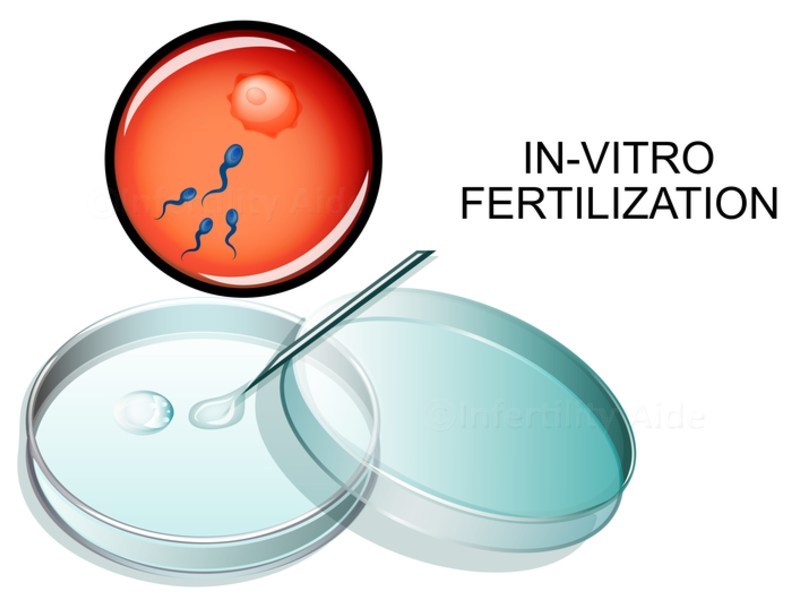In recent years, there has been growing recognition of the intricate interplay between the mind and body, particularly concerning health and wellness. When it comes to fertility, this mind-body connection plays a crucial role, with stress emerging as a significant factor influencing reproductive health. In this article, we explore the impact of stress on fertility and how fertility centers are integrating holistic approaches to support individuals and couples on their journey to parenthood.
Understanding the Stress-Fertility Link
Stress is a ubiquitous aspect of modern life, affecting individuals in various ways. However, its impact on fertility is particularly noteworthy. Research suggests that stress can disrupt hormonal balance, menstrual cycles, and ovulation, thereby impairing reproductive function. Chronic stress may also contribute to inflammation and oxidative stress, further compromising fertility. Additionally, stress can adversely affect sexual function and intimacy, exacerbating fertility-related challenges for couples. By understanding the complex mechanisms underlying the stress-fertility link, fertility specialists can tailor interventions to address both the physical and emotional aspects of infertility.
Also Read: What Are Sperm Cramps? Understanding the Causes and Solutions
The Role of Fertility Centers: Integrating Holistic Care
Fertility centers play a pivotal role in supporting individuals and couples facing fertility challenges. Beyond medical interventions such as assisted reproductive technologies (ART), fertility centers are increasingly incorporating holistic approaches to address the multifaceted nature of infertility. Mind-body interventions, including yoga, meditation, and counseling, are gaining prominence as adjunctive therapies for stress reduction and emotional support. These modalities empower individuals to cultivate resilience, manage anxiety, and enhance overall well-being, thereby optimizing their fertility outcomes.
Mindfulness-Based Approaches: Cultivating Resilience
Mindfulness-based interventions offer a promising avenue for mitigating the impact of stress on fertility. By fostering present-moment awareness and acceptance, mindfulness practices enable individuals to respond to stressors with greater equanimity and clarity. Research suggests that mindfulness-based stress reduction (MBSR) programs can improve psychological well-being, reduce perceived stress, and enhance coping mechanisms among individuals undergoing fertility treatment. Moreover, mindfulness techniques can facilitate emotional regulation and promote a sense of agency and empowerment, empowering individuals to navigate the challenges of infertility with greater resilience and self-compassion.
Mindfulness-based approaches offer powerful tools for cultivating resilience and fostering well-being in the face of life’s challenges. Rooted in ancient contemplative practices, mindfulness emphasizes present-moment awareness, acceptance, and non-judgmental observation of thoughts, feelings, and sensations.
In the realm of mental health, mindfulness-based interventions have demonstrated efficacy in reducing stress, anxiety, and depression while enhancing overall psychological well-being. By fostering a greater sense of self-awareness and emotional regulation, mindfulness equips individuals with invaluable coping strategies to navigate adversity with grace and resilience.
Moreover, mindfulness cultivates a deeper connection with oneself and the world around us, fostering a sense of interconnectedness, compassion, and empathy. Through regular mindfulness practice, individuals learn to respond to life’s challenges with greater clarity, equanimity, and perspective, rather than reacting impulsively or being overwhelmed by negative emotions.
Supportive Therapies: Nurturing Emotional Wellness
Emotional support is paramount for individuals and couples grappling with infertility. Fertility centers offer a range of supportive therapies, including individual counseling, support groups, and couples therapy, to address the psychological and relational dimensions of infertility. These interventions provide a safe space for individuals to process their emotions, express their concerns, and cultivate coping strategies. By fostering a sense of community and solidarity, support groups can mitigate feelings of isolation and shame often associated with infertility, fostering connection and mutual support among participants.
Supportive therapies play a vital role in nurturing emotional wellness and enhancing overall well-being. In the realm of healthcare, these therapies encompass a range of interventions designed to provide emotional support, coping strategies, and empowerment to individuals facing various challenges.
For those navigating infertility, supportive therapies offer a lifeline amidst the emotional rollercoaster of fertility treatment. Counseling, support groups, and couples therapy create safe spaces for individuals to process their emotions, express their concerns, and seek guidance. These interventions foster connection, empathy, and validation, mitigating feelings of isolation and loneliness often associated with infertility.
Moreover, supportive therapies equip individuals with valuable coping mechanisms to manage stress, anxiety, and depression. By cultivating resilience, self-awareness, and emotional regulation, these therapies empower individuals to navigate the ups and downs of their fertility journey with greater ease and confidence.
Comprehensive Care: Bridging the Mind-Body Divide
Effective fertility care requires a comprehensive approach that integrates medical expertise with psychosocial support and lifestyle interventions. Fertility centers are increasingly adopting a holistic model of care that addresses the interconnectedness of mind, body, and spirit. By addressing underlying stressors, optimizing lifestyle factors, and promoting emotional well-being, fertility specialists can enhance the efficacy of fertility treatments and improve overall patient outcomes. This integrated approach not only supports individuals on their journey to parenthood but also cultivates a sense of wholeness and empowerment, irrespective of the ultimate outcome.
In modern healthcare, there’s a growing recognition of the interconnectedness between mind and body. Comprehensive care aims to bridge this gap by addressing both physical and psychological aspects of health. By integrating holistic approaches, such as mindfulness, counseling, and lifestyle interventions, comprehensive care promotes well-being on multiple levels.
This approach recognizes that mental and emotional well-being are integral to overall health outcomes. For instance, in fertility treatment, stress can significantly impact reproductive health. Comprehensive care addresses this by offering support services like counseling and stress-reduction techniques alongside medical interventions.
Moreover, comprehensive care empowers individuals to take an active role in their health journey. By fostering a collaborative partnership between patients and healthcare providers, it acknowledges the importance of personalized care and shared decision-making.
Conclusion:
The mind-body connection plays a profound role in fertility, with stress emerging as a significant determinant of reproductive health. Fertility Center In Bihar are responding to this reality by embracing holistic approaches that address the emotional, psychological, and relational aspects of infertility. By integrating mindfulness-based interventions, supportive therapies, and comprehensive care modalities, fertility centers are empowering individuals and couples to navigate the challenges of infertility with resilience, compassion, and hope. As awareness grows regarding the impact of stress on fertility, these integrated approaches hold promise for enhancing fertility outcomes and promoting holistic well-being for all individuals seeking to build their families.



